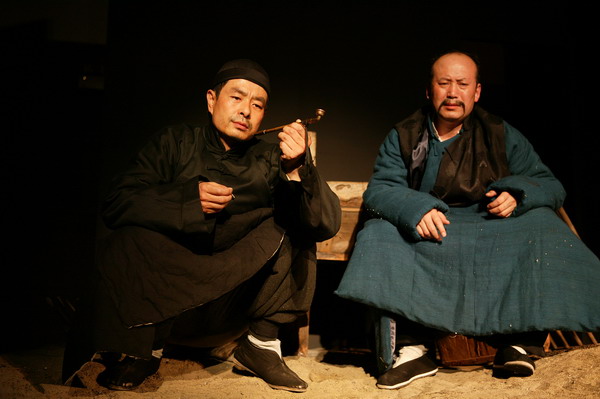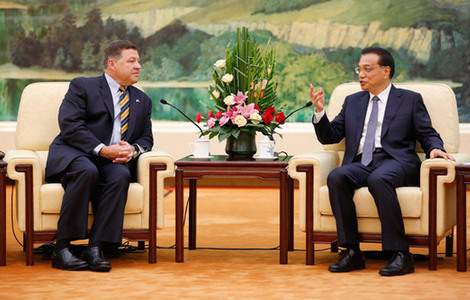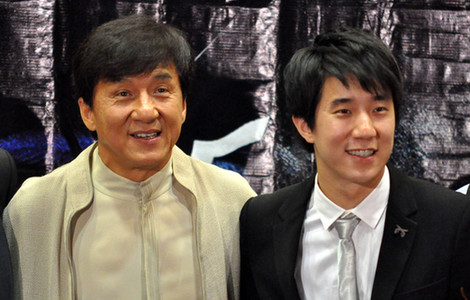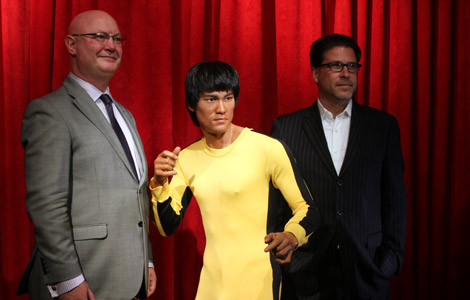From 'educated youth' to national treasure
Updated: 2014-08-18 07:43
By Wang Shanshan(China Daily USA)
|
||||||||
The Chinese Dream | Pu Cunxin
One of China's best-known dramatic actors is the public face of a number of campaigns designed to promote everything from literacy to awareness of AIDS.
When Pu Cunxin walked into the theater canteen five minutes early for our lunchtime appointment, he immediately noticed that I had no tea to drink, so he asked the waiter to bring some and then poured it for me himself. He then apologized, saying he wouldn't be eating much because he wasn't hungry - he'd been for a jog that morning and had eaten some of the porridge he had prepared for his sick father.
 |
|
Although Pu Cunxin has played regular parts such as a blue collar worker, he is better known for playing fragile, tragic intellectuals; Li Bai (701-762), the great poet of the Tang Dynasty (618-907), and Lu Xun (1881-1936), the most revered author in modern Chinese literature, are among his most celebrated roles. Provided to China Daily |
At 61, Pu - probably the most famous dramatic actor in China - has a perfectly lean figure and there are very few wrinkles on his face.
Despite a reputation for being self-deprecating, Pu is known for being loud in his ideas. In June, he published an open letter in which he recounted the difficulties he encountered when trying to study during the "cultural revolution" (1966-76), and called on youngsters to read more classic Chinese literature.
"I was a farmer for eight years, and only returned to Beijing in 1977. We didn't have the opportunity to learn, to enter a college or a high school. I was in junior high school for a year, but had no real classes.
"I was lucky in that I belonged to a group that lit candles and read books in secret after a day in the fields ... tragically many of those who didn't read during those years were laid off decades later," he wrote.
He represents hanzi - Chinese characters - in an ongoing media campaign to promote their recognition and writing among young people, because the advent of computers means many Chinese are forgetting how to write, according to several research studies.

 Residents caught giant alligator in Alabama
Residents caught giant alligator in Alabama
 Chinese biotech company rings closing bell at NASDAQ
Chinese biotech company rings closing bell at NASDAQ
 China can upgrade US transport
China can upgrade US transport
 Jackie Chan's son detained for taking drug
Jackie Chan's son detained for taking drug
 California Chinese open pockets for quake relief
California Chinese open pockets for quake relief
 Showing their skills
Showing their skills
 Unique relation needs further tightening
Unique relation needs further tightening
 Trade shows help firms to gain a foothold in Brazil
Trade shows help firms to gain a foothold in Brazil
Most Viewed
Editor's Picks

|

|

|

|

|

|
Today's Top News
Obama vows long-term strategy against ISIL
Missouri gov lifts Ferguson curfew
US police uses China's social media
China's US debt holdings dip lower, again
Anti-trust team lacks real muscle for enforcement
China bans US pork over additives
March decries 'Occupy Central'
China to audit government land income in corruption fight
US Weekly

|

|






